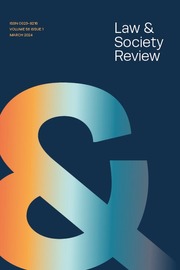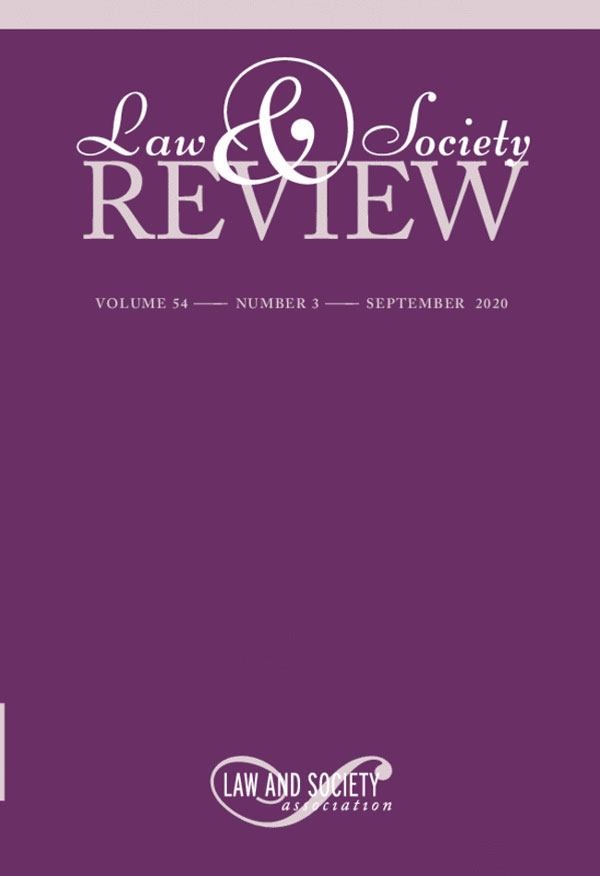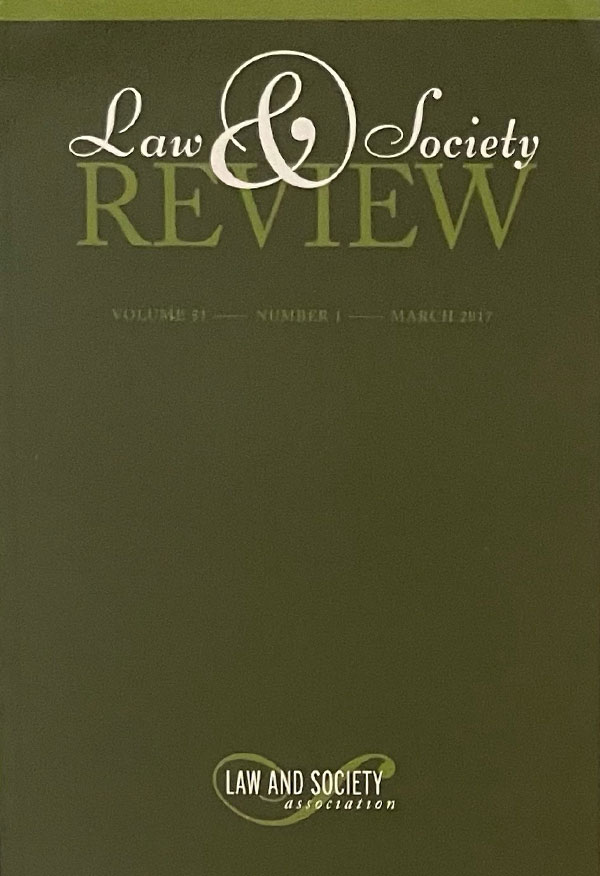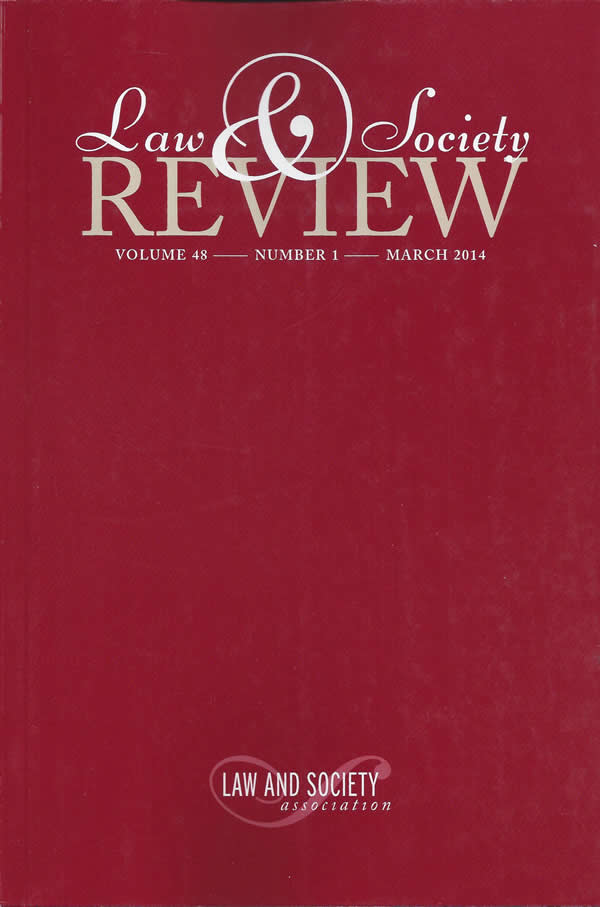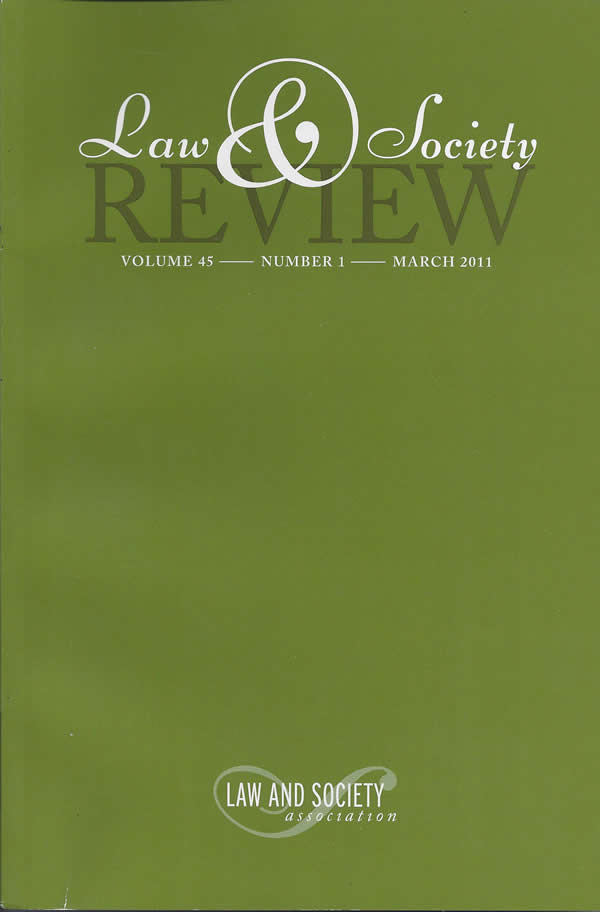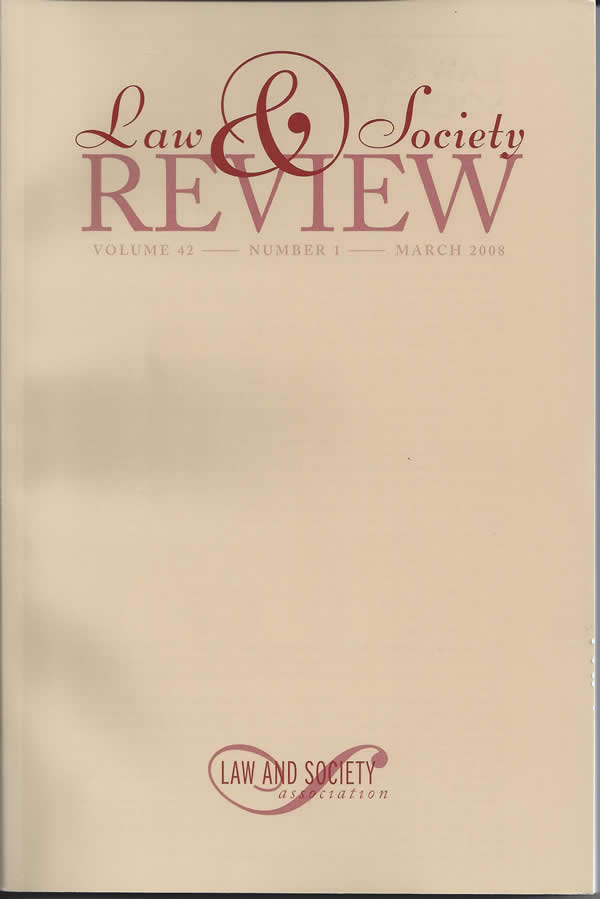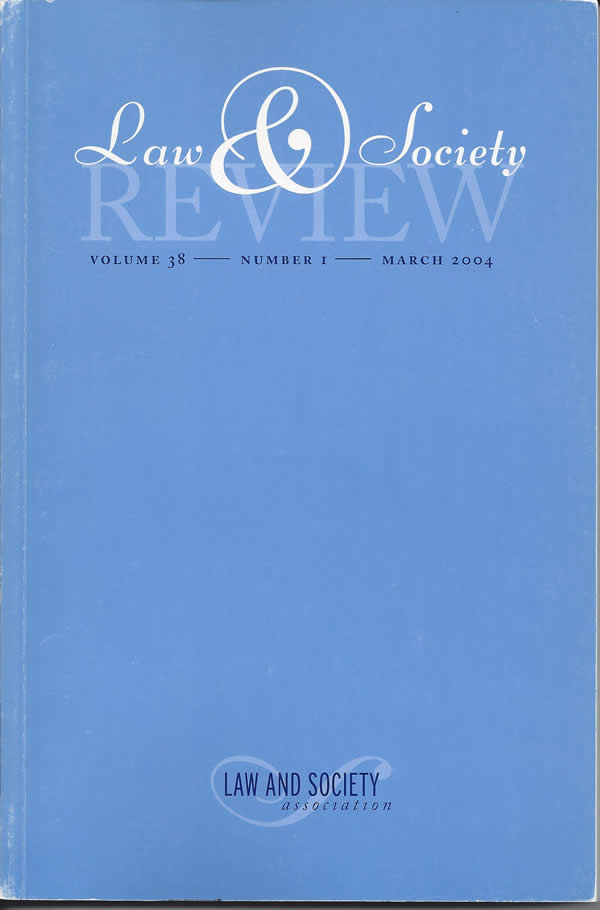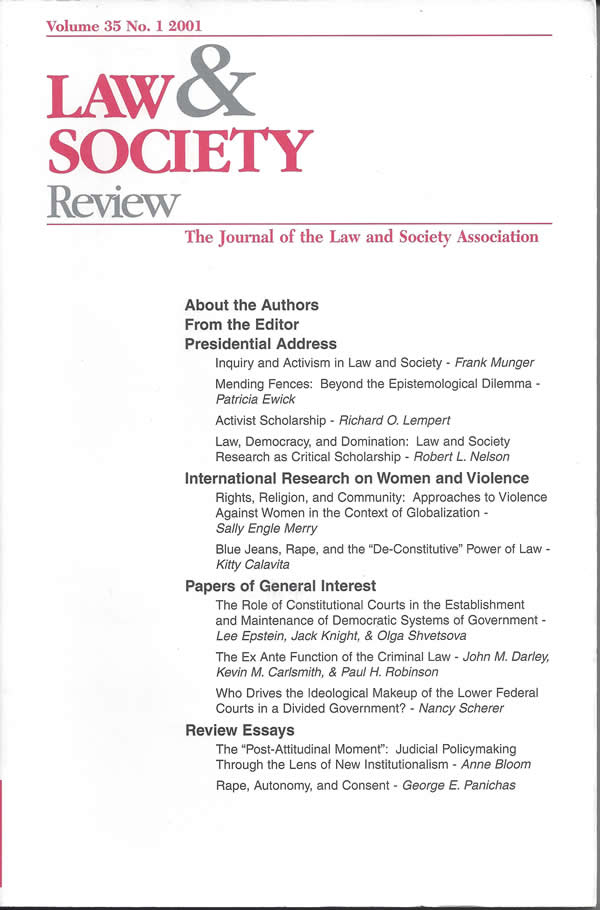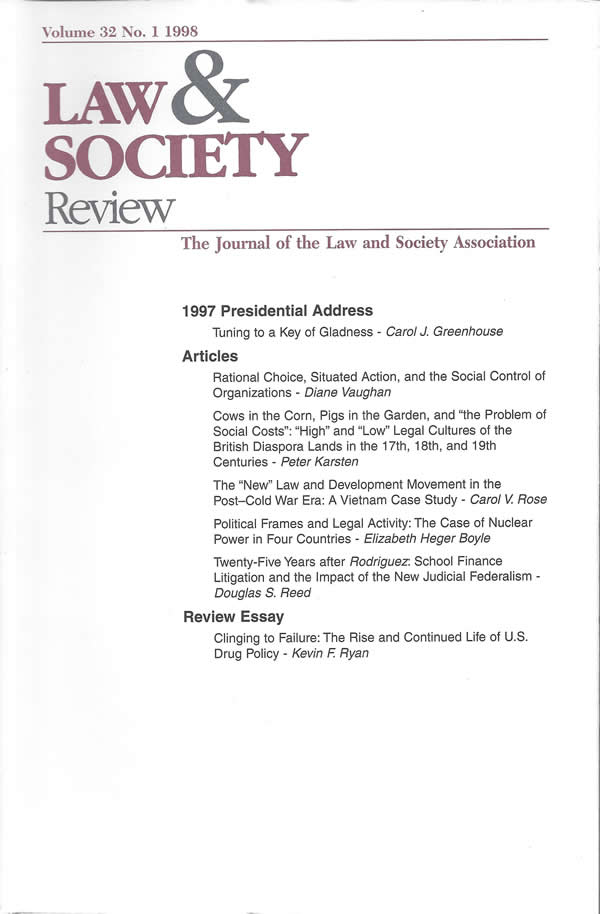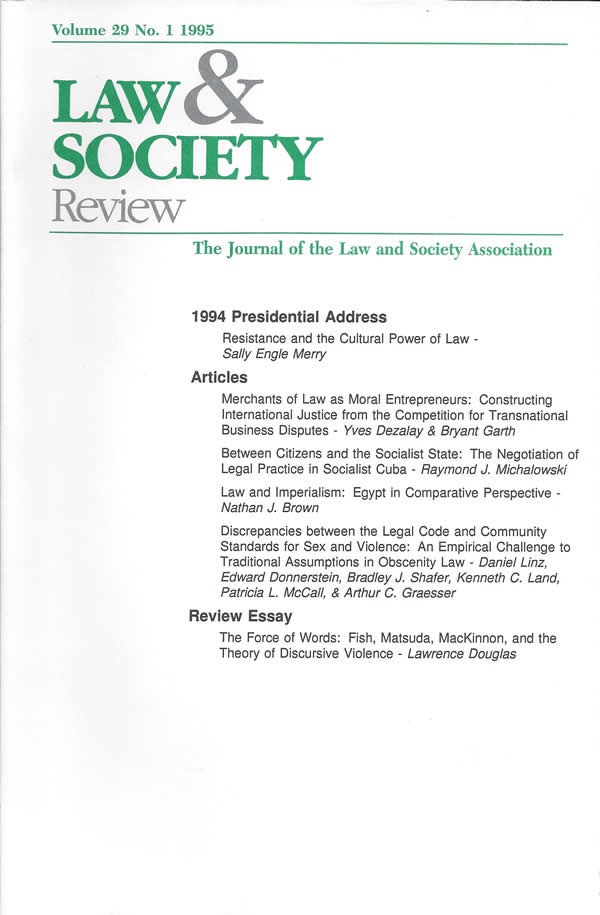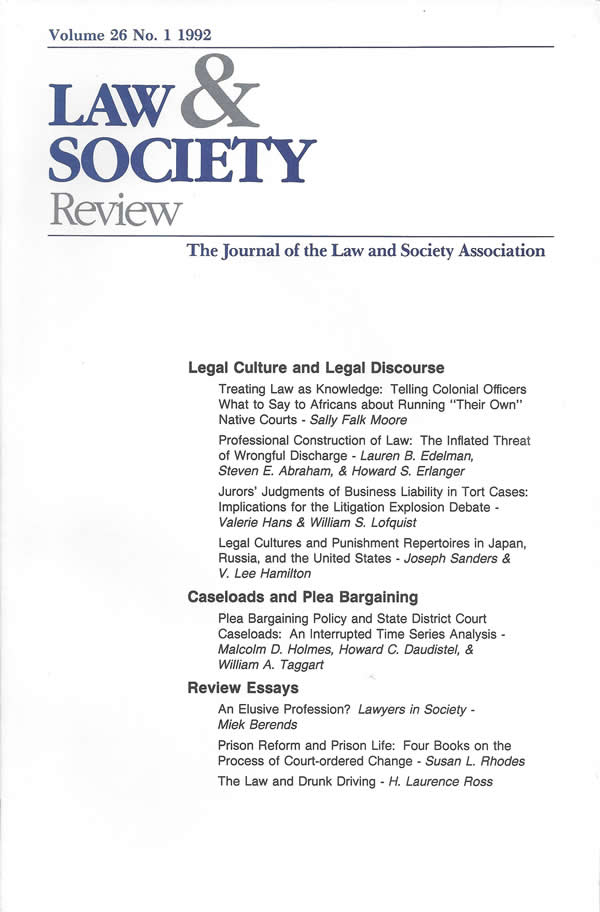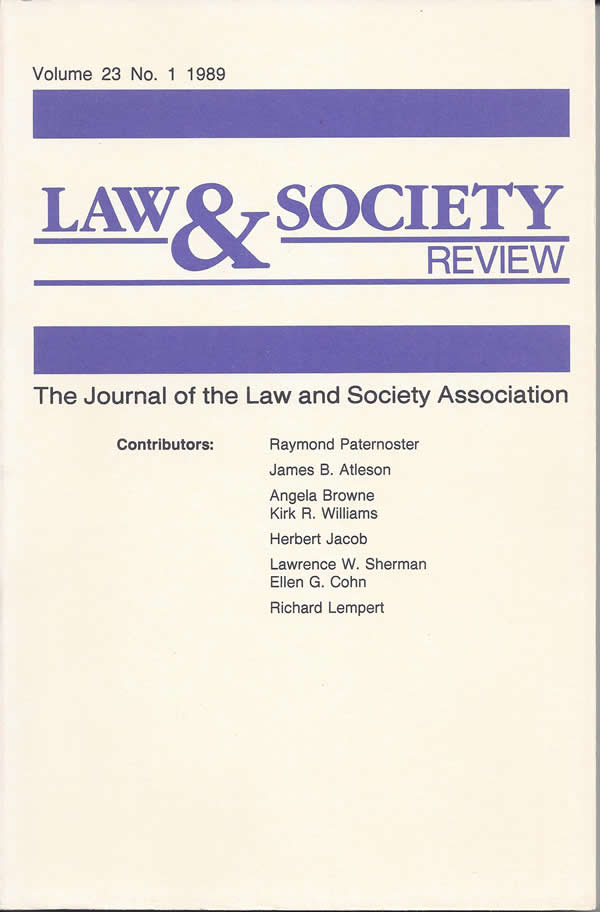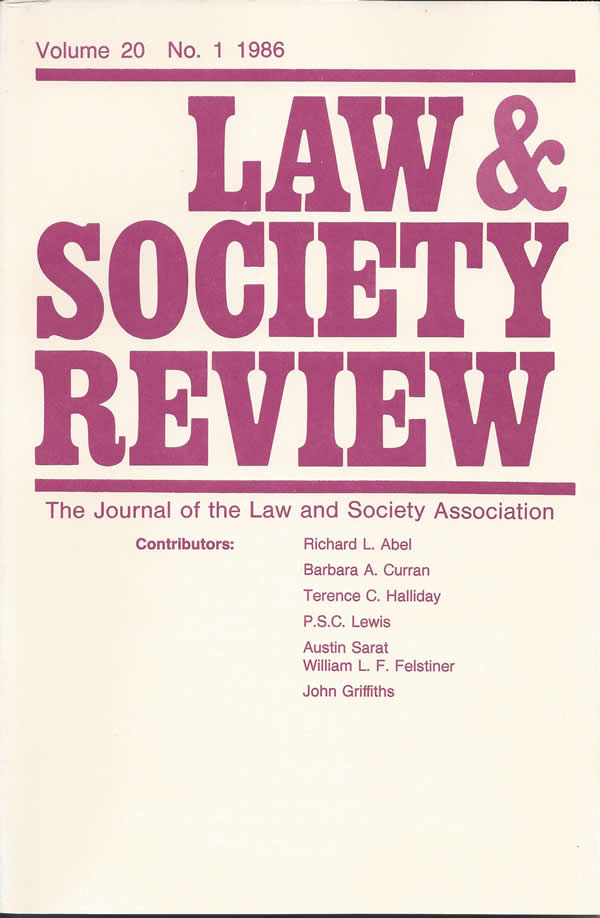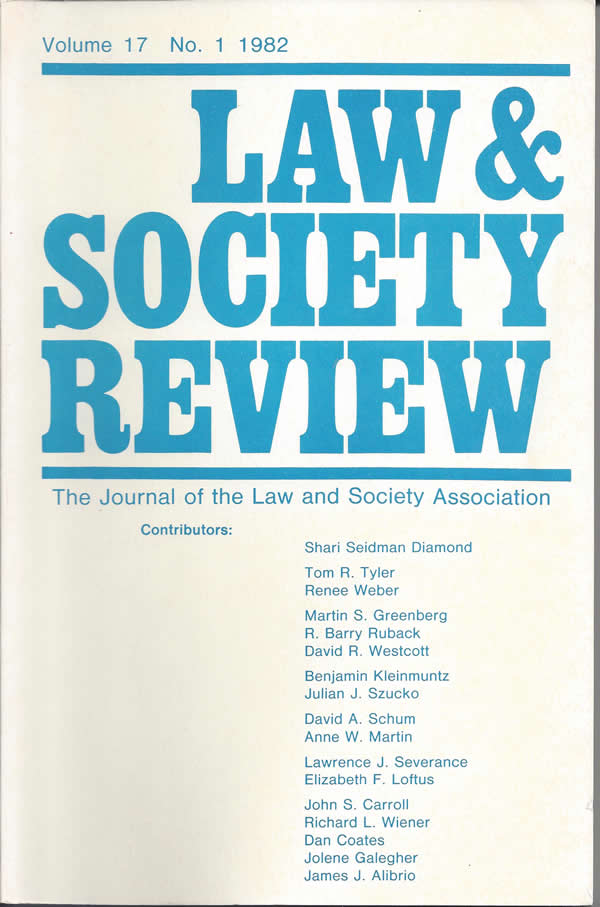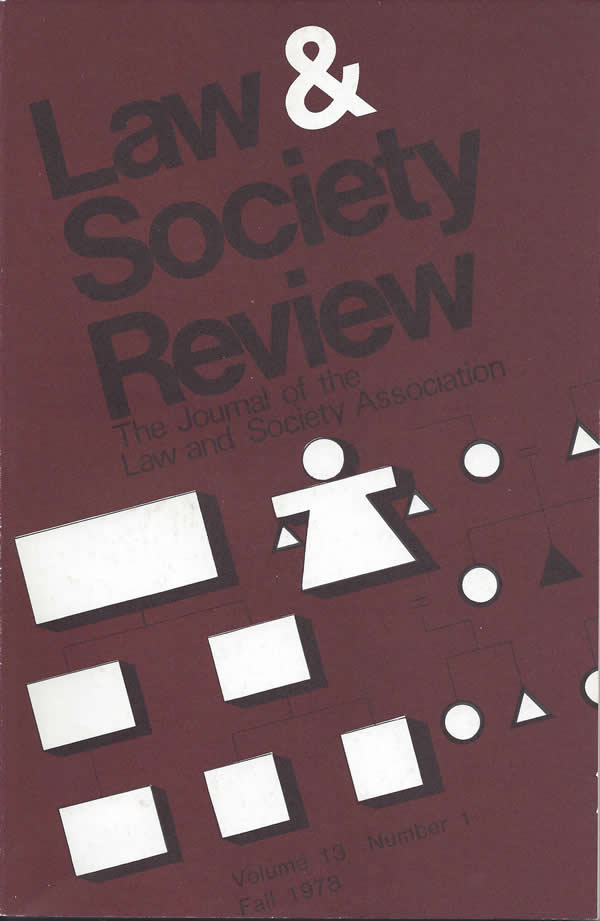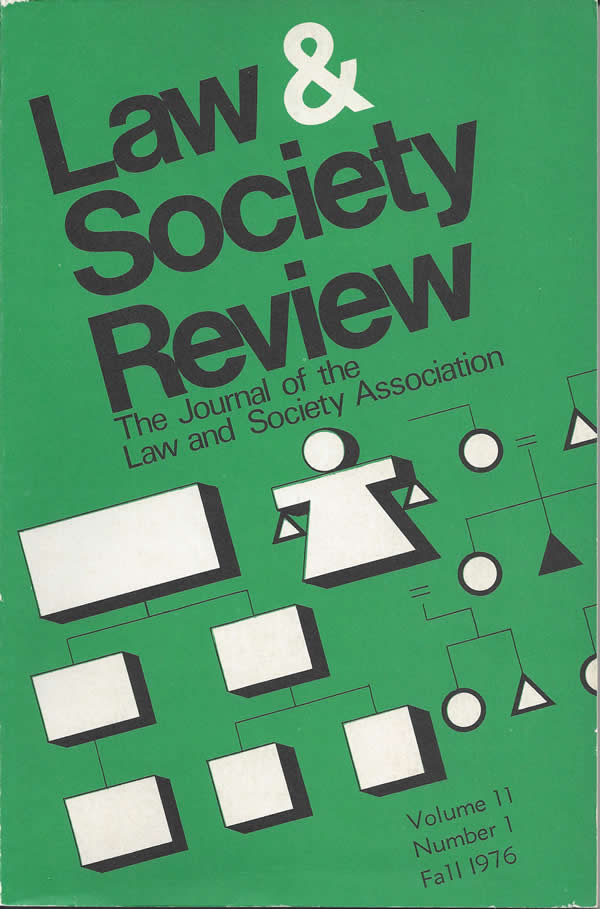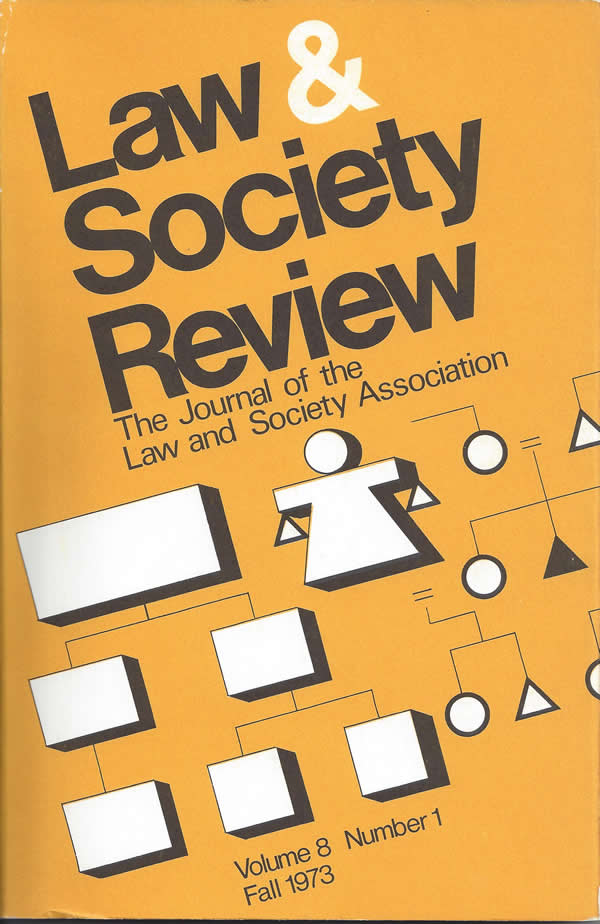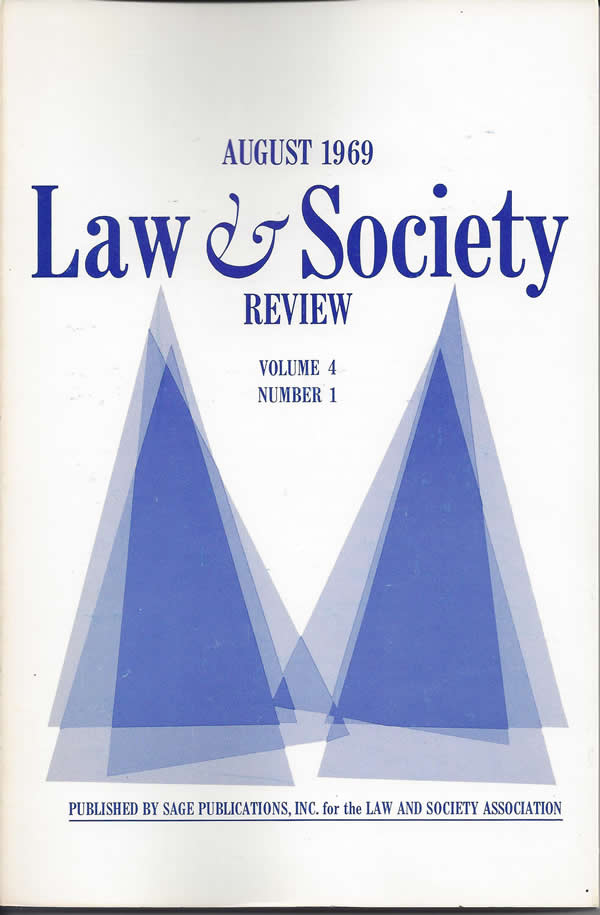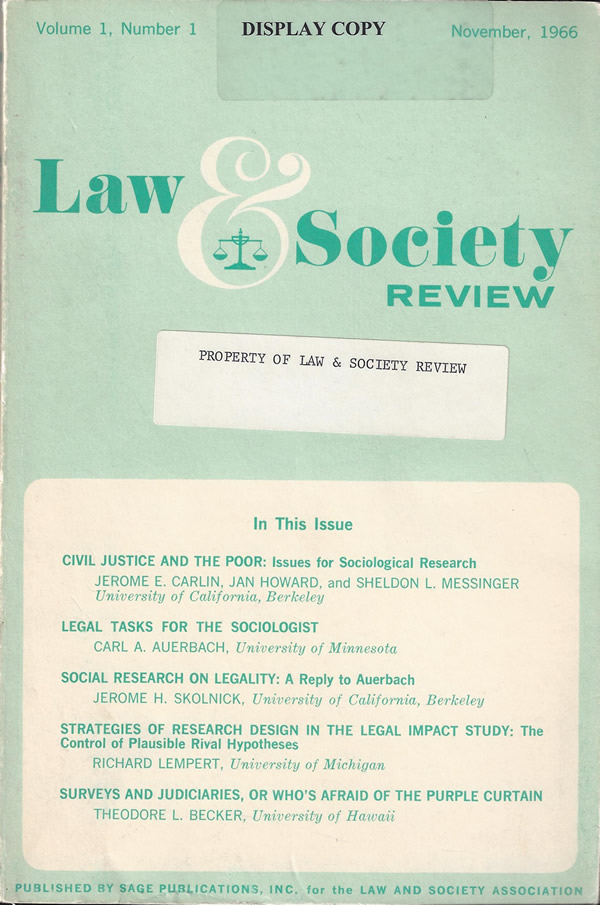LAW & SOCIETY REVIEW
2023
In 2023 Katharina Heyer, Ashley Rubin and Shauhin Talesh became the editors.
“We understand law and society as a field of knowledge and activity that is (always) in flux; consequently, what law and society means changes as new areas join classic concerns and new voices are welcomed into the community. Our goal is that the journal reflects and helps to lead the field’s expansion, while retaining the many characteristics that made LSR great in the first place. To that end, we have formally expanded the types of manuscripts we accept, including purely theoretical pieces (such as those that engage in secondary analysis of the extant literature) and purely methodological pieces (such as those that promote a new method for sociolegal research) that make strong contributions to law and society scholarship in addition to LSR’s longstanding commitment to theoretically informed empirical research.”
2020
In 2019 Rebecca L. Sandefur became the editor.
“Through the generosity and expertise of an international community of scholars, the Review is one of the world’s premier socio legal research outlets, publishing discoveries from many fields and interdisciplinary perspectives, written by scholars from and investigating activity around the globe.”
2017
In 2017 Jeannine Bell, Susan Sterett, and Margot Young became the editors.
“Our co-editorship marks an expansion in the range of the journal and its practices. Forging a three person co-editorship across universities, academic disciplines, and two countries (first time for an editor located outside of the US) mirrored our efforts to increase the diversity of who and what the journal published. Our team had the Review’s first African American editor, a long overdue development. The establishment of the Law and Society Review Blog increased timely dissemination of socio-legal research and instituting early online viewing of forthcoming articles similarly enhanced access to the scholarship. The number of submissions to the journal has gone up substantially, attesting to the appeal of this vibrant research tradition. Jennifer Balint, working as Book Review Editor from Australia, ensured the Law and Society Review’s continued relevance as the best source for new and outstanding socio-legal books.”
2014
In 2014 Joachim J. Savelsberg and Timothy Johnson became the editors.
“The principles we hope to follow build on what a long line of distinguished predecessors have been striving for over the past (almost) half century. They all sought excellence, and we too will work to select only the best work in the law and society fields as we fill the pages of the journal.”
2011
In 2011 Jon Goldberg-Hiller and David T. Johnson became the editors.
“We assumed the editorship at a time when the LSA was fast growing into an international association. Our goals were to more broadly represent the global horizon of law and society scholarship, to publish a wide range of methodologies reflective of the expanding membership, and to increase the participation of the Association’s members in the Journal’s work. We were the first to try a dual editorship, and through it all we have remained good friends.”
2004
In 2004 Herbert M. Kritzer became the editor.
“I am honored to have been selected for editorship of the Review. This journal is vital to the interdiciplinary enterprise of law and society, and I recognize the crucial role played by the editor. My goal as editor is to make the Review accessible – both as a publication outlet and as an intellectual resource for readers – to a constituency that is as broad as possible.”
2001
In 2001 Joseph Sanders became the editor.
“…since the first Review, much remains the same. Then, as now, the Association was concerned with social justice. Then, as now, people in socio-legal research were concerned about methodology and the larger epistemological questions of how we know. Then, as now, there was a strong interest in the socio-legal world outside the United States.”
1995
In 1995 William M. O’Barr became the editor.
“Many of the contributions to this issue deal in one way or another with our continuing efforts to expand horizons and cross borders. We do this not only by considering new instances of law in action but also by expanding the frameworks that we employ to develop our understandings.”
1989
In 1989 Shari Seidman Diamond became the editor.
“[I]t is clear that valuable research about law and legal institutions proceeds in many diverse directions [reflecting] the varying backgrounds of those doing research in the field…. The challenge is to reap the full benefits of these various visions and research instruments.”
1986
In 1986 Robert L. Kidder became the editor.
“We have some cause to think that there may be significant new developments in legal work. Moreover, with the growth of research in related ares, such as dispute processing, we have begun to see challenges to the usual simple dichotomies of formal vs informal,the complexity of law versus the simplicity of negotiation.”
1982
In 1982 Richard O. Lempert became the editor.
“What members of the Law and Society Association tend to have in common, among ourselves and with disciplines, is that however piecemeal our individual contributions, we are trying to develop coherent theory about a particular aspect of social life – legal systems”
1978
In 1978 Joel B. Grossman became the editor.
“One of the healthiest and most promising developments in the Review has been its increased focus on research about the law and legal systems in other countries, and the increased representation in its pages of articles written by non-American scholars. The Review is now truly an international journal and it is our intention to maintain it as such.”
1969
In 1969 Samuel Krislov became the editor.
“The Review has established a need – and met it – for a rare type of article, different from either standard law review or social science journal publications. It has provided a meeting place for writers – and editors – transcending narrow disciplinary lines.”


